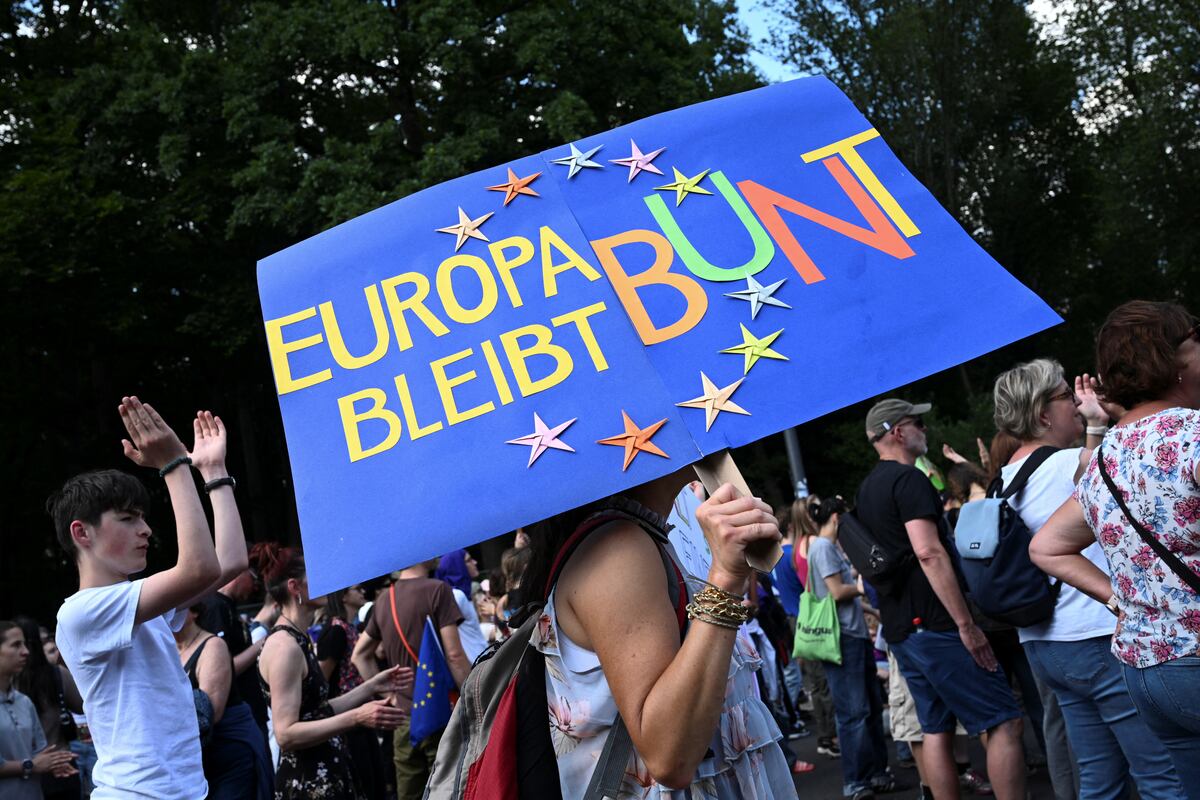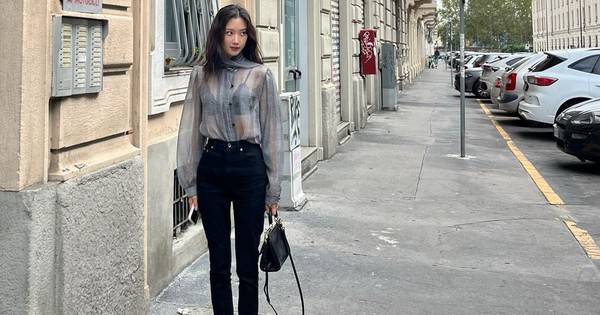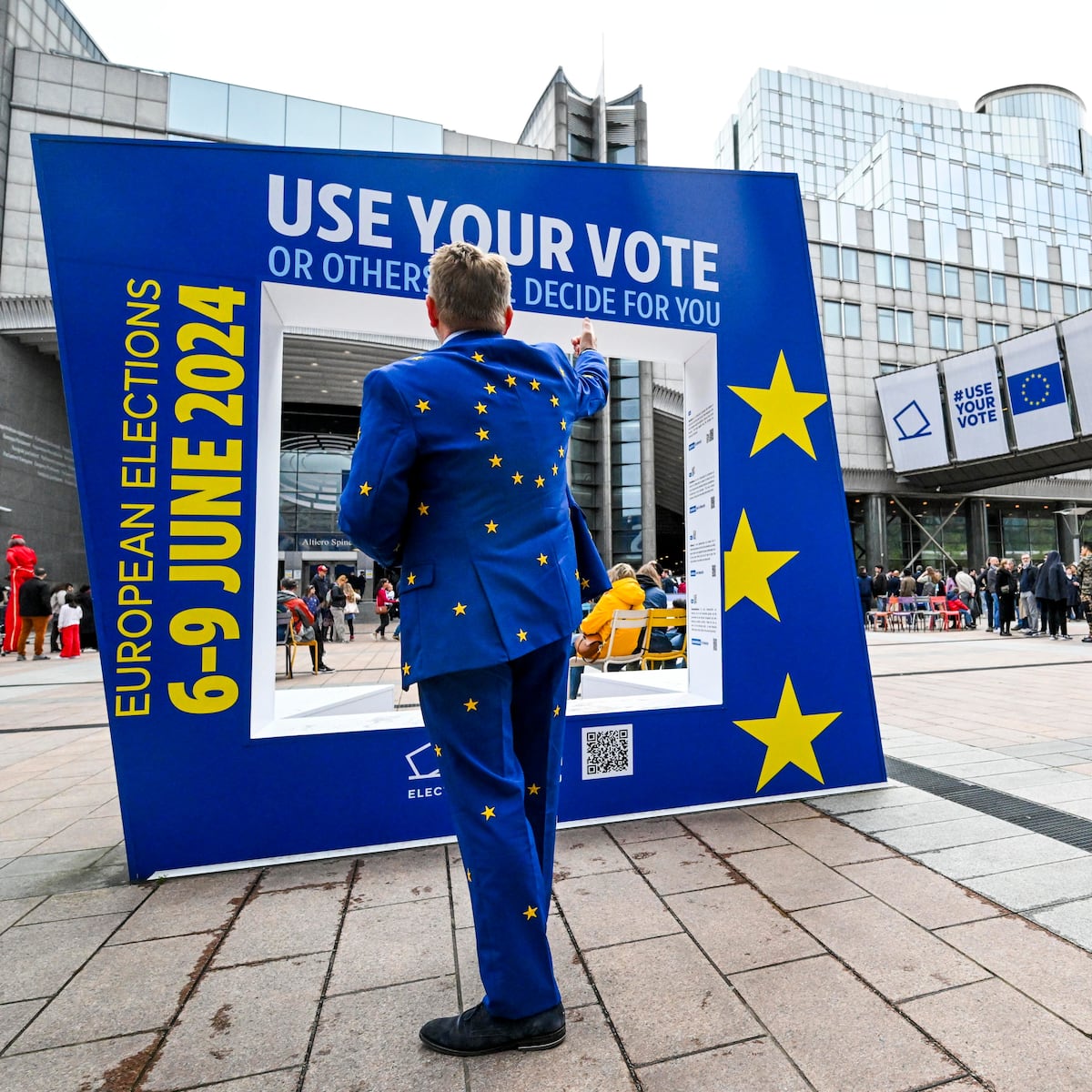The main unknown of these European elections – whether the ultra forces conquer the peaks predicted by some polls – will remain open until the end. But there is another key in which the prognosis is much less risky: the clamorous silence that a good part of the citizens will offer at the polls this Sunday. With exceptions of mass voting (partly due to countries where it is mandatory), the 2019 elections barely attracted one in two voters in more than half of the States of the European Union. Despite everything, the modest average recorded in 2019, of almost 51%, was already considered a success because it represented the best figure since 1994.
The engineering of the European Union (with directives transposed or to be transposed, trilogues, comitologies and many other obscure terms that scare away even the most enthusiastic) was never a mass phenomenon. From the beginning, the project has advanced with the understanding that enlightened elites were advancing integration. Because the harmonization of rules benefited the majority of citizens by strengthening the welfare state. It was assumed that this silent Europe – the one that does not feel challenged by elections to the European Parliament, which are not even the most decisive way for the distribution of power between institutions – gave its approval to continue along the path. With the conviction that what has been achieved during these decades will be maintained, and even expanded, through new rights and new additions to the EU neighborhood.
The fruits obtained since the first elections to the European Parliament, in 1979 (in Spain we had to wait until 1987, a year after joining the club), are evident: free movement between member states (previously reserved for a few), a framework of rights and freedoms almost unique in the world, the iconic Erasmus scholarships… Also, yes, other unpleasantries such as the forced dismantling of some industries, the cuts and rigors that made the community bloc tremble 12 years ago and a recent tightening of the immigration policy that clashes with the system of values that the EU claims to advocate.
The list of successes and errors (always easier to evaluate a posteriori) is infinite. And yet, the main asset of this strangely peaceful period in a territory that warred for centuries is precisely that: an invisible thread called peace.
Faced with the apathy – translated into abstention – that stands as the most voted list in a good part of the EU countries, in the last 10 years, disruptive options have strongly emerged. With the enthusiasm usually aroused by formulas that promise to banish everything known and replace it with something optimal, some parties use the Europe of nations as a recipe for straightening out the EU. When it was precisely the excessive fervor of nations that bled the continent. Suddenly, these messianic messages mobilize a still small part of the European people – if that concept exists – but more active at the polls than those who defend continuity policies.
Europe, the Europeans, run the risk of incurring the greatest possible blindness: taking for granted what was forged with so much effort, trying to remove forever – by law – the darkness of war. But the departure of the United Kingdom in 2020, the first and only Member State that has withdrawn from the community project due to a populist impulse fueled mainly by hoaxes, constituted a first sign. The conquests are not irreversible. Without common interests and without a set of rules that bind States, the temptation to take up arms again at the slightest disagreement may reappear.
Join Morning Express to follow all the news and read without limits.
Subscribe
.
.
_










